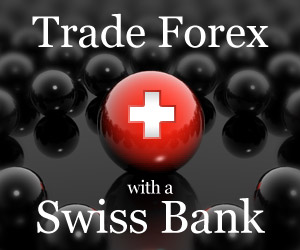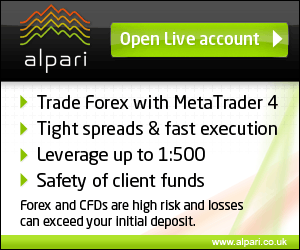Commodities Market - Different Possibilities of Investing in Commodities
Commodities market is where agricultures, energy, metals or other kind of commodities are traded. Investors can trade these markets in different ways.
Every investor should diversify his portfolio with commodities, since there is low or even negative correlation between commodities and traditional stocks, thus lowering overall portfolio risk. Like on any other market, also in commodities market you find speculators, who buy and sell on conviction about price movements. But you have to be aware, that commodities investing is volatile, promising big gains and capable of big losses.
Types Of Commodities Markets
The trading of commodities consists of direct physical trading and derivatives trading. Both types of trading have seen an upturn in the volume of trading in recent years, whereas growth of derivatives trading in much higher than in physical trading, because portfolio investors are not interested in physical delivery of the commodities, they are only interested in a mimic of price movement of certain commodity.
Over 40% of commodities trading on exchanges is conducted on US exchanges and a quarter in China. Trading on exchanges in China and India has gained in importance in recent years due to their emergence as significant commodities consumers and producers. The biggest commodities markets are New York Mercantile Exchange in USA, Tokyo Commodity Exchange in Japan, NYSE Euronext in EU, Dalian Commodity Exchange in China, Multi Commodity Exchange in India.
Delivery Of Commodities

There are generally two possibilities regarding the time to physical deliver commodities between seller and buyer. Could be either spot (spot trading) - delivery takes place immediately, or with a minimum lag between the trade and delivery due to technical constraints, or sometime in the future. Forward/ future contract is an agreement to buy or sell in the future a specific quantity of a commodity at a specific price agreed today; futures contract has the same general features as a forward contract but is transacted through a futures exchange.
Most of the participants in the futures markets are commercial or institutional users of the commodities they trade. These hedgers may use the commodity markets to take a position that will reduce the risk of financial loss due to a change in price. Other participants, mainly individuals, are speculators who hope to profit from changes in the price of the futures contract. Speculators typically close out their positions before the contract is due and never take actual delivery of the commodity itself.
How To Invest In Commodities?
In the past, small investors were not able to invest in commodities, because doing so required significant amounts of time, money and expertise. Today there are a number of different ways to access the commodities markets, and some make it fairly easy for even the average investor to participate.
Futures Market
Futures are a pure play on the underlying commodity such as crude oil, gold and natural gas, as well as agricultural products such as cattle or corn. You need a special trading account with your broker to trade futures; you have to sign the acceptance of risks connected with this types of instruments, since future markets can be very volatile and leverage is present, which magnifies both gains and losses. It is possible to go long or short on this type of trading accounts easily.
Most futures contracts have options associated with them; options allow you to invest in the futures contract, but limit your loss to the cost of the option. Options are derivatives and usually do not move point-for-point with the futures contract.
Stocks
Many investors rather buy stocks connected with commodities market then commodity directly (for example, instead of buying gold, you can buy Newmont Mining stock). Investors usually already have a brokerage account, so trading is easier.
Although, you have to be aware that stock is not a pure play on commodity prices; its price may be influenced by company-specific factors as well as market conditions. This approach requires some research to help ensure that a particular company is a good investment as well as a good commodity play. But this should not be a problem, since public information on a company's financial situation is readily available.
Exchange-Traded Funds and Exchange-Traded Notes
Exchange-traded funds (ETFs) and exchange-traded notes (ETNs), which trade like stocks, allow investors to participate in commodity price fluctuations without investing directly in futures contracts. You can trade ETFs and ETNs through classic brokerage account, as easy as stocks. Today, almost all commodities have an ETF or ETN associated with them.
Commodity ETFs usually track the price of a particular commodity or group of commodities that comprise an index by using futures contracts, although a few back the ETF with the actual commodity held in storage.
ETNs are unsecured debt designed to mimic the price fluctuation of a particular commodity or commodity index, and are backed by the issuer - you have credit risk associated with the issuer!
Mutual Funds and Index Funds
While mutual funds cannot invest directly in commodities, they can invest in stocks of companies involved in commodity-related industries, such as energy, agriculture or mining. Like the stocks they invest in, the fund shares may be affected by factors other than commodity prices, including stock market fluctuations and company-specific risks; they are not a pure play on commodity prices.
A small number of commodity index mutual funds invest in futures contracts and commodity-linked derivative investments, thus providing more direct exposure to commodity prices.
Funds are a good option for you, if you don't have sufficient knowledge to trade commodities by yourself, because a professional manager is managing funds assets and taking care for sufficient diversification; of course, you pay high management fees for this service.
Written by: Goran Dolenc
Do you find this content useful? Like! Tweet! Recommend! Share!
Where To Go Next?
Commodities Investing - Overview of Tradable Commodities Basic Facts
In this article about commodities investing you can find an overview of all tradable commodities and their basic facts.
Articles Related to Gold
Invest In Gold - Why Would You Invest In Gold?
There are number of reasons why would anyone invest in gold; could be a hedge against inflation or US dollar, value keeper or investment, save haven or portfolio diversification.
Current Gold Prices - Is Gold Really At All Time High?
First look at current gold prices is suggesting us, that gold at all-time nominal highs is probably expensive at these levels. But is this really the case?
Gold Market Price vs. Dow Jones Index
Where is today's gold market price compared to Dow Jones Index from a big picture perspective? We analyzed 110 years of history for you...
Gold Prices Today - What Is The Price Of Gold Today? Check This Real-Time Streaming Chart...
Real-Time streaming chart of gold prices today is available on this site. Serious investors would bookmark this page and come back often to check the trend in gold prices.
Gold Price Per Ounce - Are You Sure You Differentiate Between Troy And Imperial Ounce?
Gold price per ounce is a traditional measure for weight of gold, as it is for other precious metals also. But you must differentiate between troy ounce or a regular (imperial) ounce!
Gold Price Per Gram - How To Calculate The Value Of Your Scrap Gold?
How much will you be paid for gold price per gram, if you plan to sell scrap gold? We have built online calculator for you and also explain this simple math process.
Gold Index ETFs - Comparison Of Three Primary Gold Index ETFs Backed By Physical Gold
We have compared for you three primary gold index ETFs backed by physical gold: SPDR Gold Shares (GLD), ETFS Physical Swiss Gold Shares (SGOL) and iShares COMEX Gold Trust (IAU).
Articles Related to Silver
Investing In Silver - Why You Should Be Investing In Silver?
There are number of reasons why you should be investing in silver; could be a hedge against inflation or US dollar, investment or portfolio diversification.
Silver Investing - Check Real-Time Streaming Chart And Historical Analysis Of Silver Price Movement
Real-Time streaming silver investing chart is available on this site plus in depth historical analysis of silver price movement compared to gold.
Silver Fund ETFs - Comparison Of Two Primary Silver Fund ETFs Backed By Physical Silver
Silver fund ETF represent a quick and easy way for an investor to gain exposure to the silver price. We have compared for you two primary silver fund ETFs: SLV and SIVR.
Back from Commodities Market to Best Online Trading Site for Beginners home page







